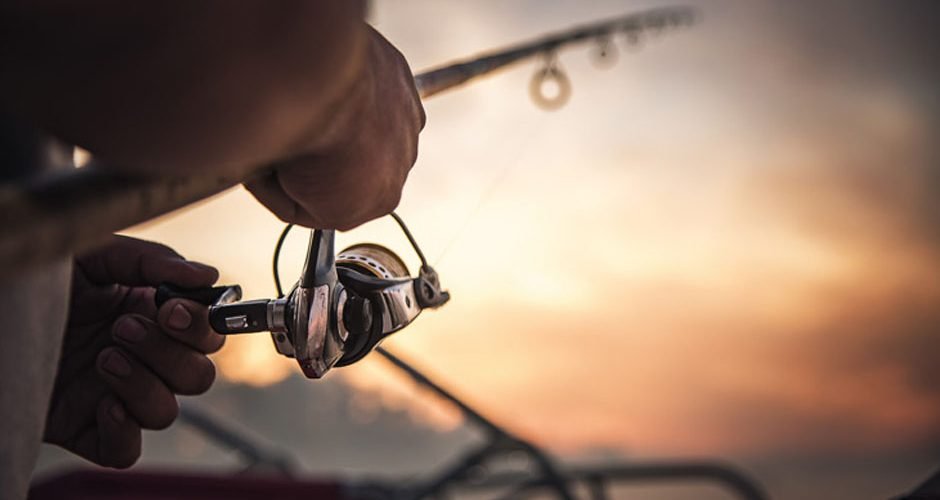Millions of people worldwide participate in the popular pastime of fishing. Both freshwater and saltwater fishing provide distinct experiences and chances to get in touch with nature, regardless of your preference. The main distinctions between freshwater and saltwater fishing will be covered in this article, along with the advantages of each.
Table of Contents
The Difference in Location
One of the primary distinctions between freshwater and saltwater fishing is the location where each activity takes place. Freshwater fishing is typically done in inland bodies of water such as lakes, rivers, and ponds. On the other hand, saltwater fishing occurs in coastal areas, including oceans, seas, and saltwater estuaries. According to the Miami Fishing Report, anglers have been experiencing great success in catching a variety of saltwater species along the city’s vibrant coastline.
Types of Fish
Freshwater and saltwater fishing also differ in terms of the types of fish that can be caught. Freshwater fishing allows anglers to target species like bass, trout, catfish, and panfish. Saltwater fishing, on the other hand, offers a wider variety of fish, such as tuna, snapper, grouper, marlin, and various types of sharks.
Gear and Equipment
The gear and equipment used for freshwater and saltwater fishing can vary significantly. In freshwater fishing, anglers commonly utilize lightweight rods and reels, as well as smaller lures or bait. Saltwater fishing often requires heavier and more durable equipment due to the larger size and strength of saltwater fish. Sturdy rods, reels with higher line capacity, and corrosion-resistant materials are essential for success in saltwater environments.
Fishing Techniques
Different fishing techniques are employed in freshwater and saltwater fishing. In freshwater, techniques like casting, trolling, and fly fishing are commonly used. Saltwater fishing often involves more specialized techniques such as deep-sea trolling, bottom fishing, jigging, and using live bait or artificial lures.
Availability and Accessibility
Freshwater fishing offers more accessible options, as inland bodies of water are often found in close proximity to residential areas. Lakes and rivers are easily accessible for fishing, allowing individuals to enjoy the activity without extensive travel. Saltwater fishing, however, requires access to coastal regions and may involve longer journeys to reach suitable fishing grounds.
Cost Considerations
The cost of freshwater and saltwater fishing can vary based on several factors. Freshwater fishing tends to be more affordable as basic gear and equipment are often less expensive. Many freshwater fishing spots also have free or inexpensive access. Saltwater fishing can be more costly due to the need for specialized equipment, chartering a boat, and obtaining necessary licenses and permits.
Environmental Factors
Freshwater and saltwater environments have distinct characteristics that influence fishing experiences. Freshwater bodies are generally calmer and less affected by strong currents and tides. Saltwater fishing, on the other hand, is influenced by tide patterns, currents, and weather conditions. Understanding these environmental factors is crucial for a successful fishing trip in either setting.
Relaxation and Serenity
Both freshwater and saltwater fishing offer opportunities for relaxation and serenity. Whether you are casting a line on a peaceful lake or enjoying the vastness of the ocean, fishing can provide a sense of tranquility and escape from daily stresses. The soothing sounds of water and the connection with nature make fishing a calming and rejuvenating activity.
Health Benefits
Engaging in fishing activities can also bring various health benefits. It promotes physical activity as casting, reeling, and maneuvering the fishing gear work different muscle groups. Spending time outdoors exposes individuals to fresh air and sunlight, which can contribute to improved mood and vitamin D production. Additionally, fishing helps reduce stress levels and promotes mental well-being.
Challenges and Excitement
Both freshwater and saltwater fishing offer their unique set of challenges and excitement. Freshwater fishing often requires finesse and precision in presenting bait to selective fish, while saltwater fishing demands strength and endurance to handle larger, more powerful species. The thrill of reeling in a prized catch and the anticipation of what might be lurking beneath the surface make fishing a thrilling and adrenaline-filled pursuit.
Conservation Efforts
Conservation efforts play a vital role in maintaining healthy fish populations and preserving fishing habitats. Anglers, regardless of whether they prefer freshwater or saltwater fishing, have a responsibility to practice ethical fishing practices. This includes adhering to catch and size limits, practicing catch-and-release when appropriate, and supporting sustainable fishing initiatives to ensure the long-term viability of fish stocks.
Community and Social Interaction
Freshwater and saltwater fishing foster a sense of community and provide opportunities for social interaction. Fishing trips can be enjoyed with family, friends, or fellow fishing enthusiasts, creating lasting memories and strengthening bonds. Participating in fishing clubs, tournaments, or online forums allows individuals to connect with like-minded individuals and share experiences, tips, and stories.
Conclusion
Freshwater and saltwater fishing offer unique experiences and opportunities to connect with nature. Each has its own set of differences, benefits, and challenges. Whether you prefer the tranquility of freshwater or the vastness of the ocean, fishing provides a rewarding and fulfilling hobby. So, grab your gear, find the perfect fishing spot, and embark on an adventure that promises relaxation, excitement, and the chance to create lasting memories.





